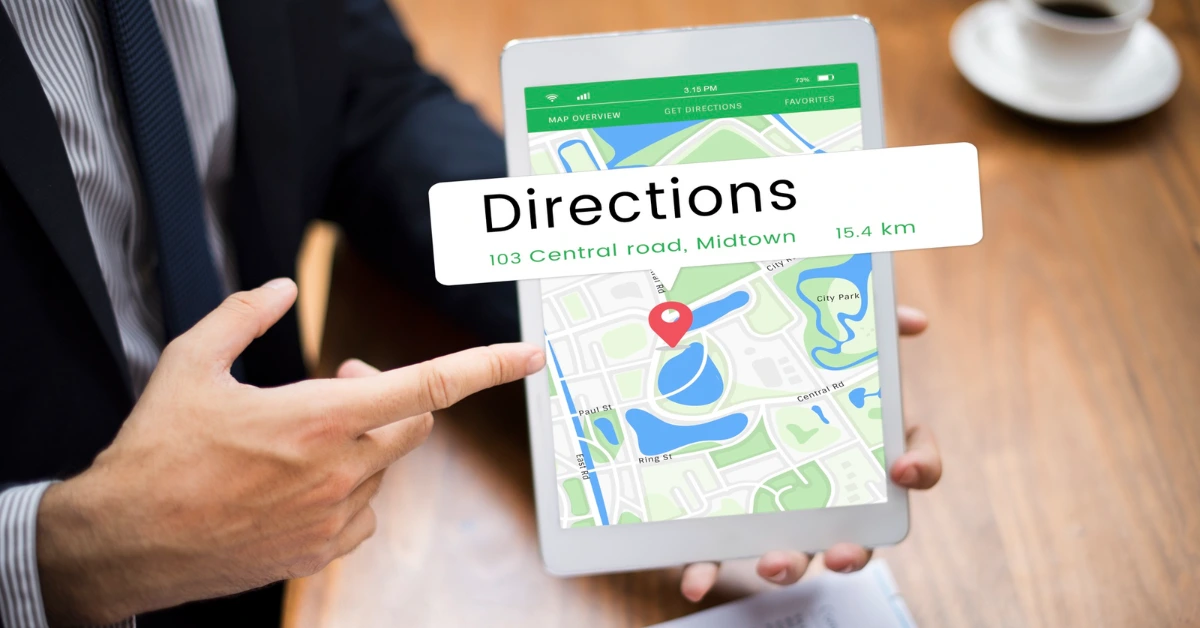White label on-page SEO is a turnkey solution that lets digital agencies and businesses offer professional website optimization services under their own brand without building an in-house SEO team. In this model, a specialized SEO provider works behind the scenes – performing tasks like keyword research, content optimization, and technical audits – while the agency retains client control and applies its branding to all deliverables. This means you can expand your service offerings and improve client sites’ search rankings with expert help, all without the overhead of hiring or training new staff. White label on-page SEO typically covers everything needed to optimize individual pages: from researching target keywords and enhancing content, to tweaking title tags, URLs, internal links, and images for maximum search visibility.
White label on-page SEO allows agencies to deliver expert optimization (charts and data shown) under their own brand, improving site rankings and user experience.
What Is White Label On-Page SEO?
White label on-page SEO is a form of SEO outsourcing or SEO resale where an agency “resells” page-level optimization services provided by a third-party specialist. In practice, the white-label provider becomes a virtual extension of the agency’s team, working under the agency’s name and giving white-label reports to clients. In this arrangement, the agency and its clients see only the agency’s branding, not the subcontractor’s.

Unlike generic outsourcing, a white-label SEO partner integrates closely with an agency’s workflow. The partner performs core on-page SEO tasks (such as keyword research, content editing, technical fixes, etc.) behind the scenes, allowing the agency to focus on client relationships and strategy while still delivering comprehensive SEO services. In effect, you gain a dedicated SEO team without recruiting SEO specialists yourself. As one expert notes, this approach “expands [an agency’s] service offerings by partnering with third-party providers while maintaining [the] agency’s own branding”.
In summary, white label on-page SEO is simply on-page optimization done for your clients by experts, but under your label. Your agency (or small business) manages the client and branding, while the SEO partner implements improvements that help web pages rank higher. This partnership model is particularly popular because it combines high-quality SEO expertise with the convenience of turnkey service.
Core Services Included
White label on-page SEO covers all the essential on-page optimization tasks that improve a page’s search performance. Key services typically include:
- Keyword Research: Identifying high-impact keywords and search intents for each page. A white-label provider will use industry tools to discover which terms potential customers use and advise on targeting them in page content.
- Content Optimization: Enhancing existing page content or creating new copy that is informative, engaging, and SEO-friendly. This involves integrating target keywords naturally, improving readability, structuring headings, and adding relevant internal links.
- Title Tag & Meta Description Optimization: Crafting compelling title tags and meta descriptions for each page. Optimized meta tags include target keywords and concise marketing language to improve click-through rates and search relevance. For example, providers will “ensure that title tags and descriptions are fully optimized for search visibility” on behalf of agencies.
- URL Structure Optimization: Adjusting page URLs to be concise, descriptive, and keyword-rich where appropriate. A good URL structure improves both user understanding and SEO. The on-page team may recommend new URLs or URL-friendly page naming to boost rankings.
- Header & HTML Tag Optimization: Using headings (<h1>, <h2>, etc.) and HTML tags properly. This includes ensuring each page has one clear <h1> tag with the primary keyword and structuring subheadings logically. Alt text for images, schema markup, and structured data may also be optimized to help search engines parse the page.
- Internal Linking: Strategically linking between pages on the same website. White label on-page SEO providers build an internal linking plan that helps search engines understand site structure and distributes page authority. As one provider notes, “Internal Linking: Strategic linking improves navigation and helps search engines understand site structure. A white label on-page SEO partner should create internal linking strategies that enhance user experience and distribute link equity effectively”.
- Image Optimization: Compressing and renaming images, and adding descriptive alt text. This makes pages load faster and helps index images in search. Providers will typically give each image a keyword-rich filename and meaningful alt text to give search engines more context.
- Technical On-Page Audits: Reviewing and fixing issues like page speed, mobile usability, crawl errors, broken links, and duplicate content. While strictly speaking technical SEO is sometimes separate, it’s often bundled with on-page efforts. Ensuring pages are technically sound complements the optimization of content and tags.
By handling these on-page elements, a white-label SEO team ensures each page of a client’s website is fully optimized for target keywords and best practices. In many cases, agencies receive detailed reports or a to-do list of changes (all labeled with the agency’s brand) which they can implement on the client’s site, or the white-label partner may implement them directly if given access.
Effective on-page SEO involves optimizing multiple page elements (as shown in this SEO mindmap image) – from keywords and content to metadata and links.
How White Label On-Page SEO Works: Step-by-Step
Partnering with a white-label SEO provider typically follows a structured process that aligns with an agency’s workflow and branding. A seasoned SEO consultant outlines the operation in four main phases:

- Discovery and Integration: The provider begins by learning the agency’s brand style, tone, and existing client processes. They create custom deliverable templates (reports, checklists, etc.) that match the agency’s branding and communication guidelines. Technical set-up happens here too – the provider gains access to analytics, SEO tools, and reporting dashboards in a way that fits the agency’s client management system. The goal is seamless integration so clients and internal teams can’t tell the work is outsourced.
- Service Customization: Rather than a “one-size-fits-all” approach, the agency and provider define which on-page services are needed for each client. For example, a web design agency might require mostly content optimization and meta tag fixes, while an e-commerce agency may need full technical audits and conversion-focused copy. The white-label partner will package deliverables accordingly – setting timelines, SLAs, and KPIs that align with each client’s goals and the agency’s pricing structure. This customization ensures the white-label services complement existing offerings.
- Execution & Workflow: Once the partnership is in motion, the agency stays as the main contact for the client, while the white-label team quietly performs the optimization work. When clients approve an SEO project, the agency internally hands off details to the white-label provider (often via secure project management tools). The provider then conducts the research, content editing, technical fixes, etc., and returns the deliverables under the agency’s logo. Regular status updates and reports are shared on the agency’s schedule, maintaining the illusion that the work is done in-house. This “invisible execution” is the heart of white-label SEO – the client only sees the agency’s brand on all materials.
- Reporting & Growth Support: Advanced white-label partnerships also include ongoing communication support. Providers often supply the agency with branded case studies, client-ready reports, and even sales materials. For instance, the partner might create proposal templates or SEO educational resources tailored to the agency’s market. Essentially, the provider acts as an invisible SEO department that not only executes campaigns but also helps the agency pitch, onboard, and retain clients. In one example, a white-label team quickly produced a branded proposal to help a partner agency salvage a large SEO pitch, ultimately securing a six-figure contract.
Throughout this process, the agency maintains control over client relationships, while the white-label provider handles the labor-intensive SEO tasks. Clear communication channels – such as shared project boards, regular check-in calls, and white-labeled reporting dashboards – are crucial to make sure goals and progress are transparent at all times.
By following these steps, agencies can seamlessly integrate specialized SEO expertise. As one observer puts it: “The white label SEO process operates through four distinct phases… each designed to seamlessly integrate specialized SEO expertise into your agency’s service offerings.”.
Benefits of Using White Label On-Page SEO
Partnering with a white-label on-page SEO provider offers multiple advantages for agencies and small businesses:
- Rapid Expansion of Services: Agencies can start selling SEO immediately without recruiting or training SEO staff. This “one-stop-shop” model lets a web design or marketing agency become an SEO reseller overnight. As one expert notes, this approach “enables agencies to augment their in-house capabilities … without needing to invest heavily in additional infrastructure or personnel”. In short, you add SEO services to your portfolio with minimal hassle.
- Cost-Effective Scaling: White-label SEO avoids the overhead of in-house hiring. You pay only for services delivered, not full-time salaries or software licenses. As a white-label reseller explanation points out, agencies “start offering SEO services without incurring overhead costs. You will get rid of recruitment, training, management, [and] the cost of tools and technology”. This means better profit margins – you can mark up the provider’s price and still undercut the typical cost of an in-house team.
- Time Savings and Focus: SEO is labor-intensive. By offloading execution to specialists, agencies free up time to acquire new clients, improve strategy, and focus on high-level tasks. As one review notes, white-label partnerships let agencies “focus on managing your business for success” while the partner handles daily SEO work. Agencies reclaim hours of laborious research and editing, allowing them to serve more clients.
- Access to Expertise: White-label providers bring deep SEO knowledge and tools. Agencies instantly gain access to seasoned SEO professionals, proven processes, and enterprise-grade tools (e.g. rank trackers, audit software) without learning curves. A senior SEO consultant observes that white labeling provides “specialized expertise without organizational complexity” – you avoid the $70K+ salary for each expert and skip the multi-month training period. In practical terms, one design agency turned a $2,500/month SEO spend into $8,000 in billings by leveraging a white-label team’s skills.
- Flexible Bandwidth: During busy seasons or growth spurts, white label providers allow agencies to scale up instantly. You can take on unlimited projects, knowing your partner has the personnel to deliver. Conversely, if demand falls, you simply pause contracts instead of laying off staff. This operational agility is a key benefit – agencies can expand and contract services on-demand without permanent commitments.
- Improved Client Retention: Offering high-quality SEO under your brand can impress clients and keep them loyal. Agencies effectively present a large virtual team and sophisticated services. For example, when clients see comprehensive SEO results (like higher rankings and traffic), they perceive the agency as a full-service firm and stay longer. As one source points out, after delivering value through white-label SEO, “they are likely to remain loyal to your brand”.
- Competitive Edge: In markets where many competitors lack SEO expertise, an agency that can promise advanced on-page optimization stands out. By leveraging the white-label partner’s reputation and methodologies, agencies can pursue larger or more complex SEO projects. According to experts, this positioning “helps secure higher-value clients and more substantial projects” than would be possible otherwise.

Overall, white label on-page SEO lets agencies grow faster and smarter. You gain a built-in SEO department that can handle multiple clients and niches, all for a lower ongoing cost. This means you can offer more (and better) services with less investment, directly boosting your revenue and client satisfaction.
Recommended Tools & Platforms
A variety of tools and platforms support white-label on-page SEO services. Some are full-service SEO partners (often with agency pricing), and others are software platforms that agencies can brand as their own. Here are a few categories and examples:
- White-Label SEO Service Platforms: Companies like DashClicks, Vendasta, The HOTH, and Boostability operate marketing platforms or networks of experts that agencies can subscribe to. For example, DashClicks offers a comprehensive dashboard for on-page SEO, handling meta tag optimization, content enhancement, and technical audits on behalf of agencies. Vendasta provides a marketplace of SEO services (including website audits and keyword research) that agencies can resell under their brand. The HOTH specializes in both content optimization (titles, metadata, copy) and technical SEO fixes, offering white-label reporting to agencies. These platforms allow agencies to outsource all on-page work and usually include reporting tools.
- White-Label SEO Software Tools: These are SaaS platforms that agencies can customize with their logo and client portals. Notable ones include AgencyAnalytics, Semrush, SE Ranking, BrightLocal, and WebCEO. For instance, SE Ranking allows full rebranding and has on-page optimization tools, site audit features, and keyword tracking. AgencyAnalytics offers a drag-and-drop dashboard where agencies can embed client data and reports under their own brand. BrightLocal is geared toward local SEO but offers white-label local rankings and citation reports. Such tools help agencies monitor on-page factors, generate custom reports for clients, and manage multiple SEO projects in one interface.
- Content and Link Tools: Agencies may also use white-label content services (like SEO copywriting platforms or image optimization services) and link-building services that allow reselling. For example, some SEO firms offer syndicated content packages that agencies can rebrand. (Always vet content quality and ensure no duplicate content issues when outsourcing copywriting.)
- Reporting Tools: Many agencies use specialized reporting software (e.g. DashThis, WebCEO, Nightwatch) that include white-label dashboards. These tools can pull data from Google Analytics, Search Console, and SEO audits to create branded monthly reports that agencies deliver to clients.
Overall, the goal is to choose tools that let you maintain your agency branding. Some platforms (like SE Ranking) explicitly offer white-label packages where you can use your logo on all reports. Others (like Semrush) may not have full white-label, but you can use data to create client reports. The SPP.co review lists several top options and rates them on ease of white-labeling. In practice, you might combine a few – for example, use AgencyAnalytics for client dashboards, SE Ranking for keyword tracking and on-page audits, and a content optimization service for copy.
Tools and dashboards are often key to white-label SEO work. Platforms like AgencyAnalytics, SE Ranking, and BrightLocal let agencies present metrics and reports under their own branding.
Conclusion
White-label on-page SEO offers a powerful way for agencies, freelancers, and small businesses to expand their digital marketing services and drive client results without the time and cost of building an in-house SEO department. By partnering with experienced SEO professionals, you can instantly offer comprehensive on-page optimization – from keyword planning and content edits to meta tags and technical audits. This not only saves you money and resources, but also lets you focus on client relationships and strategic growth.
As we’ve seen, white-label SEO can boost profitability, streamline workflows, and give agencies a competitive edge. To make the most of it, choose a reputable provider with a transparent process and proven success, set clear goals and communication channels, and be mindful of potential pitfalls. When done right, white-label on-page SEO turns your agency into a full-service powerhouse – delighting clients with better rankings and traffic, and helping you scale your business efficiently.
Considering expanding your offerings? White-label SEO could be the key to scaling your services quickly. It’s an investment in growth: you leverage expert SEO teams and tools while preserving your brand. In 2025 and beyond, with organic search still a top traffic source, adding white-label on-page SEO to your portfolio can secure your agency’s future. Start exploring partnership options today and unlock new revenue streams and client success without the usual growing pains.







Share